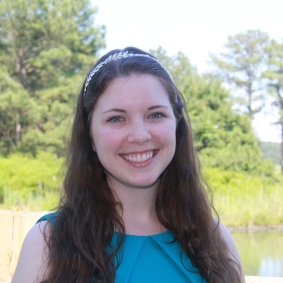Knauss legislative fellowships in Congress help build careers — and they're fun and educational. See our video and fact sheet for details.
Suzi Webster

Fellowship Institution:
NOAA OAR Technology Partnerships OfficeStart Year:
2021Suzi Webster is a Stakeholder Engagement and Outreach Specialist in the NOAA Technology Partnerships Office.
Suzi grew up around Chicago and obtained a bachelor's degree in biology and anthropology from the University of Notre Dame. She is currently a Ph.D. candidate at the University of Maryland Center for Environmental Science in the Marine Estuarine Environmental Sciences Graduate Program. Her research focuses on stakeholder engagement in Chesapeake Bay environmental science and management. In her dissertation, Suzi investigates stakeholder perspectives on how citizen science can contribute to scientific research that informs collaborative and innovative environmental management decisions. Her research provides evidence-based recommendations for expanded public engagement in environmental science and management in the Chesapeake Bay and beyond.
Throughout her career, Suzi has participated in a wide variety of scientific efforts, including researching baboon social dominance in a parasitology lab, wrangling cattle on Cape Cod to study how grazing can help with invasive plant management, and working on a team of science communicators at the Integration and Application Network to create environmental health assessments for diverse stakeholder audiences. In her free time, she enjoys gardening, camping, listening to '80s music, and exploring new places with her husband.
Call for Symposium Presenters and Authors
The Chesapeake Rising: Innovative Law and Policy Solutions for Climate Adaptation in Coastal Communities symposium will explore key legal and policy considerations that affect climate adaptation strategies. It provides a unique opportunity for upper-level law students and early-career lawyers to present and publish their legal scholarship.
Program Announcements
-
-
Maryland Sea Grant has program development funds for start-up efforts, graduate student research, or strategic support for emerging areas of research. Apply here.
News and Blogs
Video Gallery
Sea Grant Film Explores a Diminishing Smithville
Smithville is a community on Maryland’s Eastern Shore, on the edge of the Blackwater National Wildlife Refuge. A century ago, Smithville had more than 100 residents. Today, it has four, in two homes: an elderly couple, and one elderly woman and her son, who cares for her.
Featured Fellow
Featured Research Project
Developing a habitat model for mysids, an important link in Chesapeake Bay food webs
Mysids are important mesozooplankton prey for many species of fish in Chesapeake Bay and are an important link in transferring energy from lower to upper trophic levels. Mysids also serve as biological vectors for benthic-pelagic coupling due to their diel vertical migration and omnivorous prey-switching behavior, which makes mysids important regulators of food web architecture. Despite their central role in coastal food webs, surprisingly little is known about mysid ecology and dynamics in Chesapeake Bay.
The Blue Crab: Callinectes Sapidus
An essential resource for researchers, students, and managers. Get your copy today!


©2025 Maryland Sea Grant. All rights reserved.
5825 University Research Court, Suite 1350 | College Park, MD 20740
Phone: (301) 405-7500 | Fax: (301) 314-5780 | Contact Us



